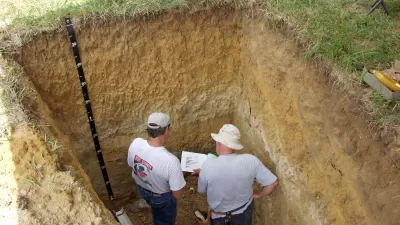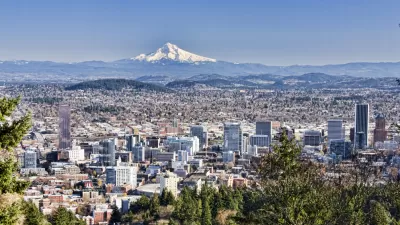A recent article reveals the inconspicuous nature of the city—an ecosystem, "pipes and all."
"Cities may strike us as the opposite of 'the environment': As we pave streets and erect buildings, nature comes to feel like the thing you find somewhere else. But scientists working in the growing field of urban ecology argue that we’re missing something," writes Courtney Humphries for The Boston Globe. In fact, according to the article, "the city is a distinct form of 'environment,' and an important one. Truly understanding how it works—and how it affects the millions of people who may live and work there—will mean studying the whole city as a living system, both its organisms and its pipes, roads, and landfills."
Humphries goes on to cite a number of research activities around Boston and other cities that research the implications our emerging understanding of urban ecology: "Living systems don’t just exist: They evolve, responding to changes in the rules that govern their existence. And as we try to design more sustainable cities for the future, understanding the full picture of urban ecosystems just might give us a smarter way to shape them."
FULL STORY: The city is an ecosystem, pipes and all

Planetizen Federal Action Tracker
A weekly monitor of how Trump’s orders and actions are impacting planners and planning in America.

Map: Where Senate Republicans Want to Sell Your Public Lands
For public land advocates, the Senate Republicans’ proposal to sell millions of acres of public land in the West is “the biggest fight of their careers.”

Restaurant Patios Were a Pandemic Win — Why Were They so Hard to Keep?
Social distancing requirements and changes in travel patterns prompted cities to pilot new uses for street and sidewalk space. Then it got complicated.

Platform Pilsner: Vancouver Transit Agency Releases... a Beer?
TransLink will receive a portion of every sale of the four-pack.

Toronto Weighs Cheaper Transit, Parking Hikes for Major Events
Special event rates would take effect during large festivals, sports games and concerts to ‘discourage driving, manage congestion and free up space for transit.”

Berlin to Consider Car-Free Zone Larger Than Manhattan
The area bound by the 22-mile Ringbahn would still allow 12 uses of a private automobile per year per person, and several other exemptions.
Urban Design for Planners 1: Software Tools
This six-course series explores essential urban design concepts using open source software and equips planners with the tools they need to participate fully in the urban design process.
Planning for Universal Design
Learn the tools for implementing Universal Design in planning regulations.
Heyer Gruel & Associates PA
JM Goldson LLC
Custer County Colorado
City of Camden Redevelopment Agency
City of Astoria
Transportation Research & Education Center (TREC) at Portland State University
Camden Redevelopment Agency
City of Claremont
Municipality of Princeton (NJ)





























